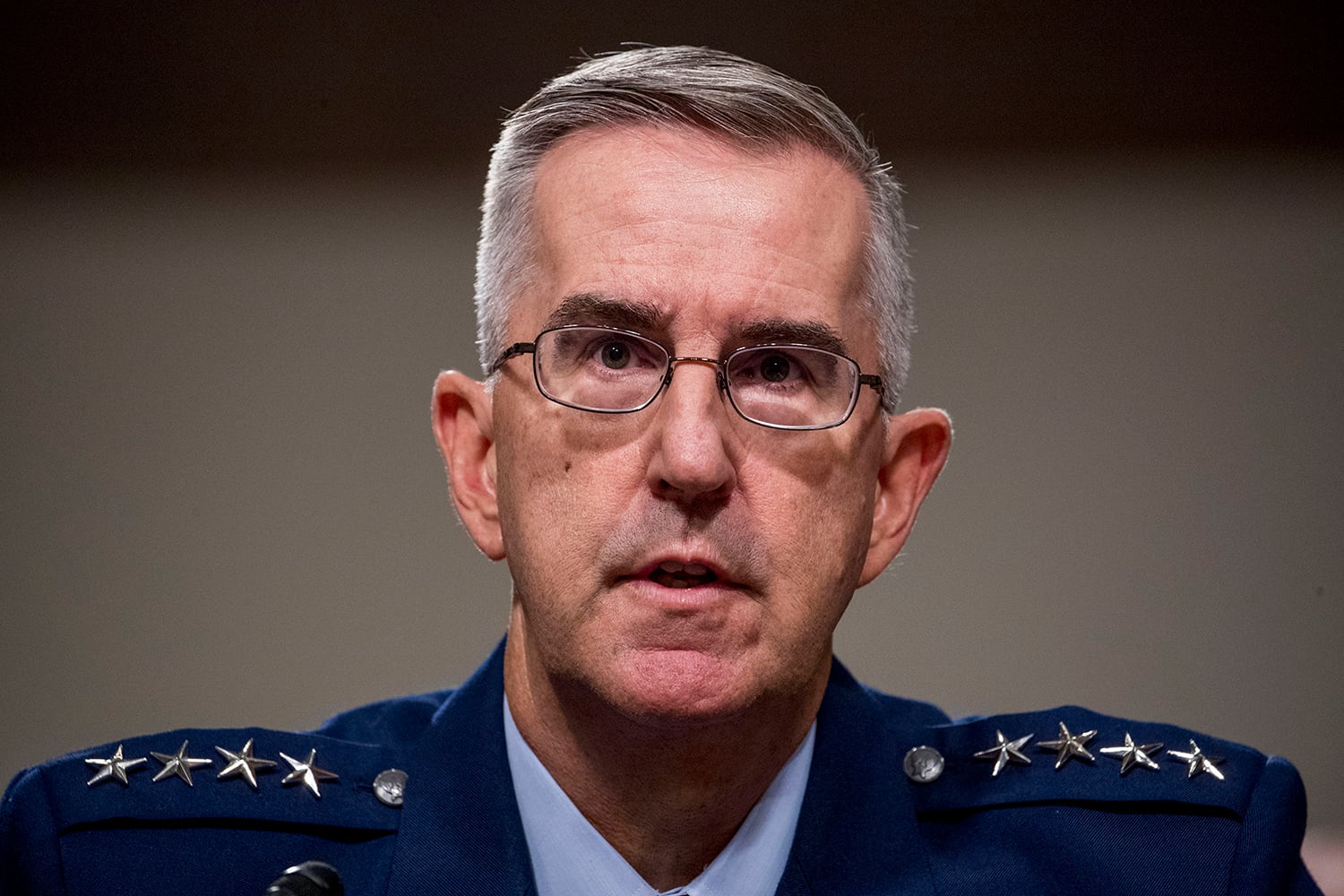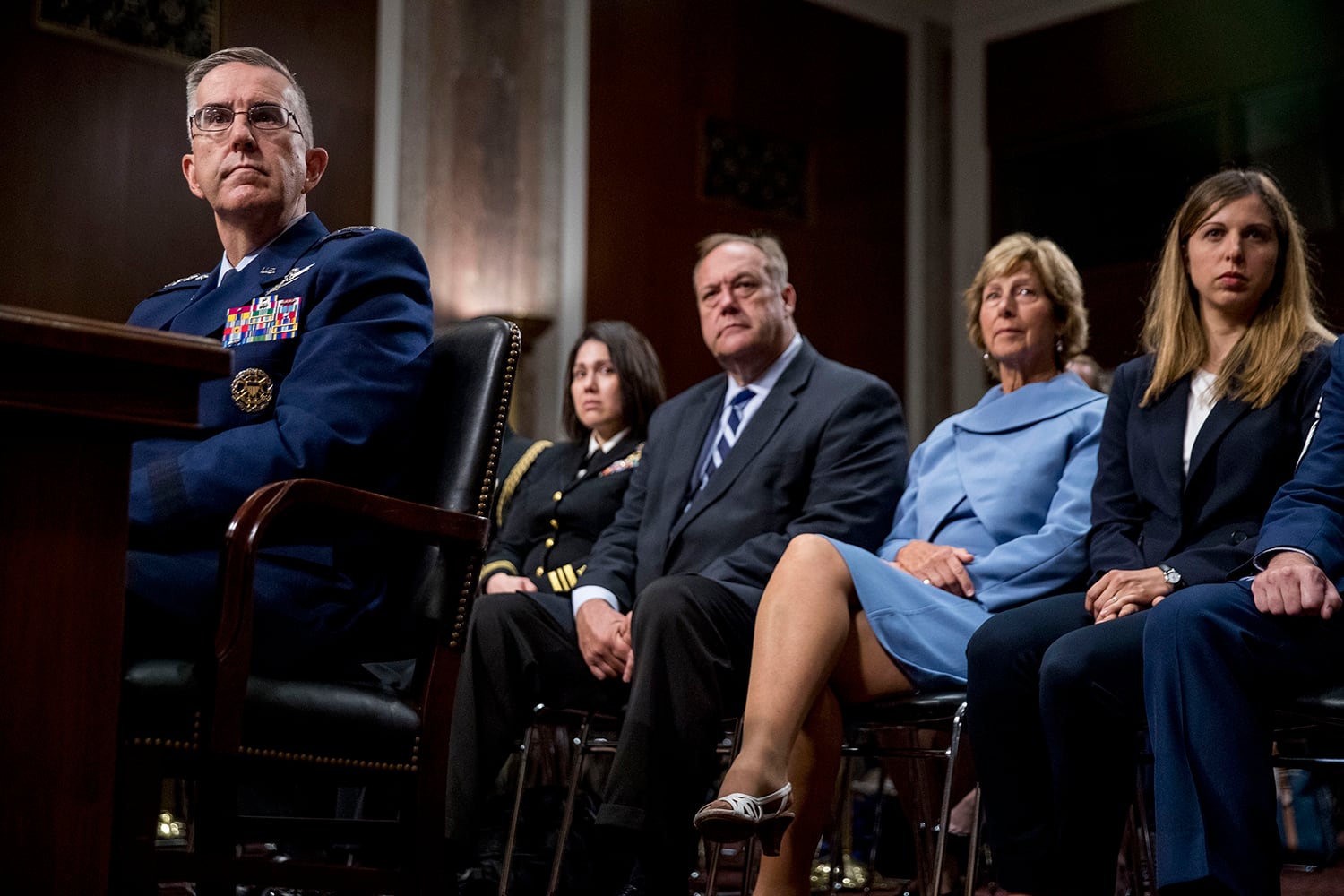Plagued by sexual assault allegations, the nomination of Air Force Gen. John E. Hyten presents serious questions about Congressional oversight in the “Me Too” era and the ongoing politicization of the military’s criminal justice system.
President Donald J. Trump picked Hyten to be the vice chairman of the Joint Chiefs of Staff — the second highest-ranking officer in the entire U.S. military — but Congress has plenary oversight of the armed forces under Article I, Section 8, Clause 14 of the Constitution.
In that role, and with a bipartisan vote, the Senate Armed Services Committee approved Hyten’s nomination — despite allegations he sexually assaulted Army Col. Kathryn Spletstoser during work trips the two took in 2017.
Even Sen. Martha McSally, R-Ariz. — a reported victim of sexual assault at the hands of one of her former superior commanders — supports Hyten, opining that he has been “falsely accused” and that the allegations against him “are not credible.”
How would she know? Was she there? McSally’s remarks are chilling and undermine the military’s attempts to take seriously sexual assault allegations in the ranks.
Hyten, of course, has a presumption of innocence. But that does not mean he should be nominated, let alone confirmed, as the second highest-ranking officer in the armed forces without further investigation and, if necessary, action by the military’s criminal justice system.
When asked by the Committee what he would do to help prevent sexual assaults, Hyten wrote “[W]e must empower our commanders and hold them accountable for the command climate in their units. Additionally, we must ensure every service member, from new recruits to our most senior officers, adheres to a culture of professionalism and respect, which starts with leadership.”
Given the cloud now over his head, exactly how is Hyten supposed to do this? Does his nomination really send the message to all service members that those who should be fully investigated or held accountable will instead be promoted?
His nomination also raises the notion of “different spanks for different ranks” to a whole new level.

But Hyten’s ascension isn’t the only danger to military justice emanating from Washington, D.C.
Take, for example, Sen. Kirsten Gillibrand’s jihad on military justice. The Democrat from New York repeatedly has weighed in on specific cases being investigated or tried inside the armed forces, efforts that could lead to defendants being wrongfully charged or convicted.
President Trump’s recent move to rescind medals awarded to attorneys on a prosecution team that completely bungled the court-martial of a Navy SEAL in California also continues the politicization of our military justice system.
The cancer of partisan politics — coupled with limp oversight of our most powerful flag officers — presents a clear and present danger to all soldiers, sailors, Marines and airmen who raised their hands to defend and support the Constitution of the United States.
The solutions to these problems won’t be easy or quick. It will take leadership and consistency. But first we must take all allegations of sexual assault and misconduct within our armed forces seriously.
Long before guards found accused sex trafficker Jeffery Epstein dead in his cell from an apparent suicide, critics complained he got a pass from prosecutors because he was connected to all sorts of powerful politicians.
Here, lawmakers are faced with a nominee for very high office who is dogged by credible allegations of sexual assault against him. Instead of urging service leaders to pursue the court-martial process to explore these accusations, these senators have sought to promote him.
It’s like watching a red star cluster burn above the battlefield — a clear signal that danger is near, help required — and doing nothing.
Our service members deserve better. They deserve better leaders, both civilian and in uniform, and they especially deserve leaders who don’t serve under an omnipresent cloud of suspicion.
Most importantly, our military deserves a judicial system that promotes equality and justice for all, without a silent and corrosive maxim guiding its operations — “different spanks for different ranks."
RELATED

Based in Washington, D.C., Navy veteran David P. Sheldon is one of the nation’s best attorneys specializing in military justice. Although he represents service members from all the armed forces, he’s been in the news lately for his victories representing Senior Chief Special Warfare Operator Keith E. Barry and Lt. Natalie Combs. His words do not necessarily reflect the opinions of Navy Times or its staffers.





